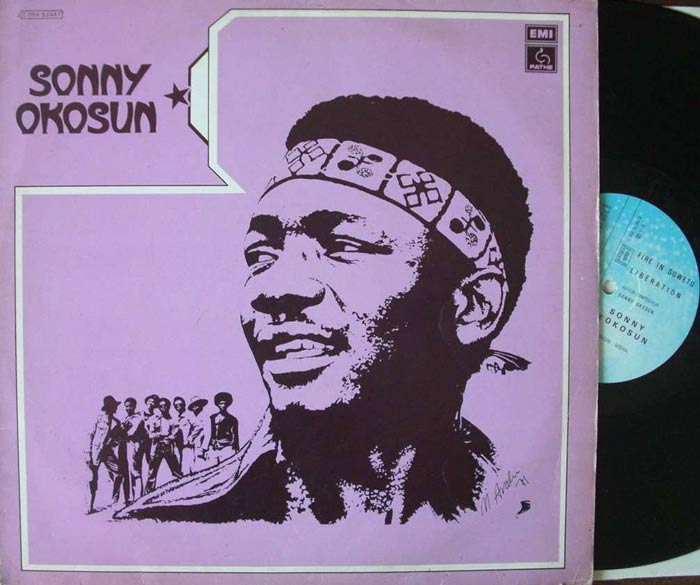PROFILE
Sonny Okosun, Legendary musician and artist
Nationality: Nigerian
You may be familiar with the name Fela (Ransome) Kuti, affectionately known as Fela. A renowned artist who through his music that strongly reveberated beyond his native Nigeria advocated for justice, government accountability and Pan-Africanism.
In a less militaristic fashion, there is certainly another artist worthy to be lauded alongside Fela. His name is none other than the legendary Sonny Okosun (O-ko-soon). His musical career, which began around 1960 focused on Pan-Africanism – freedom, social and political issues affecting Africans. His discography includes many records sung in English, Igbo, Hausa and Yoruba.
Sunny Okosun (birth: January 1st 1947) hails from Edo State in southern Nigeria. His brand of music was termed Afro pop music: a blend of afro beat, reggae and funk music. Not many people may know this but in 1966, with the Postmen band, he played the music of Cliff Richard, Elvis Presley and The Beatles introducing their sounds to Nigerians. He got his break leading a band in the 70’s which started off with the name Paperback and later regrouped as Ozziddi.
Okosun’s first big break in Nigeria was with the song Help (1970). It was an introduction of sort. The lyric is full of humility; his gentle vocal sound sweetens his delivery of his music. The song is an appeal to listeners to support his music. He saw the relationship between the artist and the listener as a kind of partnership in which both sides were rewarded and dependent on each other.
Give Peace a Chance (1979) is one of many compelling Okosun songs with a strong message. The song calls for African unity amongst nations, urges leaders within nations to settle grudges and more fundamentally, calls for brotherly and sisterly love amongst Africans. The sound has that reggae feel that sets a very reflective ambience for the listener. Just think Bob Marley.
Papa’s Land (1977) is a song with a funky beat that easily gets you swaying your shoulders from left to right. The beat is catchy and you do not realize that it runs for a minute and a half before he begins to sing. Papa’s Land poses a question about who really owns African nations. It seems to address colonial powers, requesting that they relinquish their powers over Africa and allow Africans to determine their own faith.
Fire in Soweto (1978) reflects on the tragedy that occurred in Soweto in South Africa where high school students revolted against the government mandate to maintain Afrikaans language in their schools. The government response was deadly and many people died as a result. The song also recognizes riots in Mozambique, the fighting in Namibia, and the action of rebels in Zimbabwe.
His first American album licensed to Jive Records, an American label, featured the song Which Way Nigeria in the early 1980. It is a song of patriotism that is concerned with inefficiency and corruption from the government. However, it urges citizens to take ownership over the fate of their country. Considerate of the effects of the Biafran war not long after independence, it is almost a song that aims to spring a sense of true nationalism that unifies discorded ethnicities in Nigeria.
There are many other songs worth mentioning here but one may also find particular interest in his song Revolution. Around 1993, Sonny (used interchangeably with Sunny) Okosun’s songs gravitated towards gospel and he started a church, House of Prayer Ministry, in 1998. His soul transitioned from earth on 24 May 2008 in Washington DC. Many of his songs can be found on YouTube and some of them are accompanied by video recordings. May his soul continue to rest in peace.
Jude Ehikwe is on Twitter: @jehiks08

